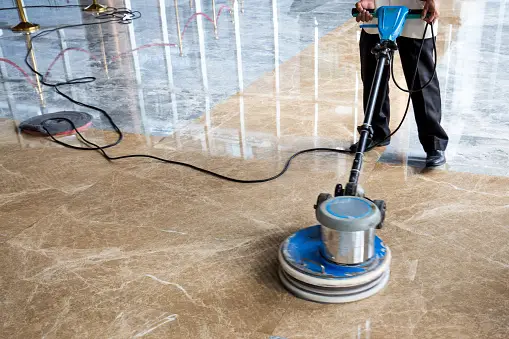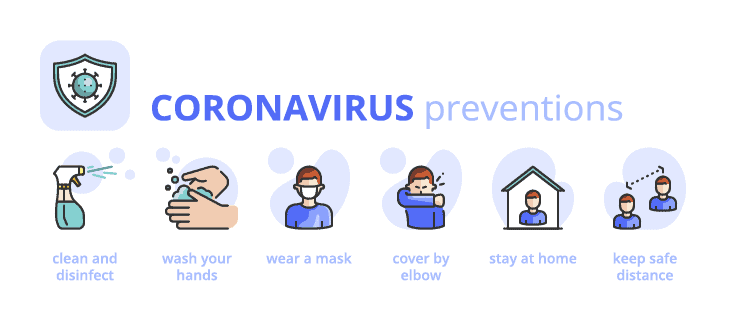
The Psychology of Cleanliness: How a Clean Environment Impacts Well-being
Date Posted:
March 7, 2024
Cleanliness is often associated with physical hygiene, but its significance extends far beyond the realm of cleanliness itself. It encompasses the state of being free from dirt, germs, and disorder, contributing significantly to both physical health and psychological well-being.
Introduction
Cleanliness is a fundamental aspect of human life, ingrained in our daily routines and cultural practices. From keeping our homes tidy to maintaining sanitation in public spaces, cleanliness plays a crucial role in promoting a healthy and harmonious environment. In this article, we delve into the psychology of cleanliness and explore how a clean environment impacts overall well-being.
The Connection Between Cleanliness and Well-being
Psychological Impact of a Clean Environment
A clean environment has been shown to have a profound effect on mental health and emotional well-being. Studies have indicated that individuals who reside in clean and organized spaces experience lower levels of stress and anxiety compared to those living in cluttered environments. A clutter-free space promotes a sense of calm and tranquility, allowing individuals to focus their attention and maintain mental clarity.
Physical Health Benefits
In addition to its psychological effects, cleanliness also plays a crucial role in maintaining physical health. Regular cleaning and disinfection help eliminate harmful bacteria and viruses, reducing the risk of illness and infection. A clean environment fosters a healthier lifestyle, encouraging individuals to engage in hygiene practices such as handwashing and surface sanitization.
Cleanliness and Mental Health
Reduction of Stress and Anxiety
Clutter and disorganization can contribute to feelings of overwhelm and anxiety. By maintaining a clean and orderly environment, individuals can alleviate stress and create a sense of harmony in their surroundings. A clutter-free space promotes relaxation and enhances mental well-being, allowing individuals to unwind and recharge after a long day.
Improvement in Mood and Productivity
Studies have shown that a clean and organized workspace can significantly impact mood and productivity. A clutter-free environment fosters a sense of professionalism and efficiency, enabling individuals to focus their attention on tasks without distraction. A tidy workspace promotes creativity and innovation, leading to greater job satisfaction and overall productivity.
Cultural and Societal Perspectives on Cleanliness
Historical Views on Cleanliness
Throughout history, cleanliness has been revered as a virtue and symbol of purity in various cultures and societies. Ancient civilizations placed a high value on cleanliness, associating it with spiritual and moral purity. Rituals and ceremonies centered around cleanliness were common practices, emphasizing the importance of maintaining a clean and sacred environment.
Cultural Norms and Cleanliness Rituals
Today, cultural norms and traditions continue to influence attitudes towards cleanliness. In many societies, cleanliness is synonymous with self-respect and social status, with individuals striving to present themselves and their surroundings in the best possible light. Cleanliness rituals, such as daily bathing and grooming practices, are deeply ingrained in cultural traditions and customs, reflecting a desire for cleanliness and hygiene.
The Role of Cleanliness in Personal Development
Organization and Clarity of Mind
Maintaining a clean and organized environment promotes clarity of thought and enhances cognitive function. By decluttering and arranging their surroundings, individuals can create a space conducive to productivity and creativity. A clean environment allows for better concentration and focus, enabling individuals to pursue their goals and aspirations with clarity and purpose.
Formation of Positive Habits
Practicing cleanliness and orderliness fosters the development of positive habits and routines. By incorporating cleaning and tidying tasks into their daily schedule, individuals can cultivate a sense of discipline and responsibility. Over time, these habits become ingrained in their lifestyle, leading to improved efficiency and overall well-being.
Cleanliness in Professional Settings
Impact on Workplace Morale and Efficiency
A clean and well-maintained workspace is essential for promoting a positive work environment. Employees who work in clean and organized spaces report higher levels of job satisfaction and morale. A clutter-free workplace fosters a sense of professionalism and pride, boosting employee morale and fostering a collaborative and productive atmosphere.
Importance of Cleanliness in Customer Perception
In addition to its internal benefits, cleanliness also influences customer perception and satisfaction. Businesses that prioritize cleanliness and sanitation are perceived as more reputable and trustworthy by customers. A clean and hygienic environment enhances the overall customer experience, instilling confidence and loyalty in the brand.
Tips for Maintaining a Clean Environment
Establishing Cleaning Routines
Creating a regular cleaning schedule is essential for maintaining a clean and organized environment. Set aside dedicated time each day or week to tackle cleaning tasks and decluttering efforts. By incorporating cleaning into your routine, you can ensure that your space remains tidy and inviting at all times.
Decluttering and Organization Strategies
Take proactive steps to declutter and organize your surroundings to minimize clutter and promote a sense of orderliness. Invest in storage solutions such as bins, baskets, and shelves to keep belongings neatly organized and out of sight. Adopt a minimalist mindset and prioritize functionality and efficiency when arranging your space.
Overcoming Challenges to Cleanliness
Time Management Techniques
Finding time to clean and tidy can be challenging, especially for individuals with busy schedules. Implement time management techniques such as setting priorities, delegating tasks, and breaking cleaning tasks into smaller manageable steps. By allocating time and resources effectively, you can maintain a clean environment without feeling overwhelmed.
Addressing Psychological Barriers
For some individuals, maintaining cleanliness may be hindered by psychological barriers such as perfectionism or procrastination. Recognize and address these barriers by setting realistic goals and expectations for yourself. Focus on progress rather than perfection and celebrate small victories along the way.
Environmental Cleanliness and Sustainability
Eco-friendly Cleaning Practices
Incorporate eco-friendly cleaning products and practices into your cleaning routine to minimize environmental impact. Choose natural and biodegradable cleaning agents that are safe for both the environment and your health. Reduce waste by opting for reusable cleaning tools and avoiding single-use plastics.
Reducing Waste and Pollution
Practice responsible waste management by recycling and composting waste whenever possible. Minimize your carbon footprint by conserving resources and reducing energy consumption in your daily activities. By adopting sustainable habits, you can contribute to a cleaner and healthier planet for future generations.
Cleanliness in Public Spaces
Importance of Cleanliness in Public Health
Maintaining cleanliness in public spaces is essential for safeguarding public health and preventing the spread of infectious diseases. Regular cleaning and sanitation of public facilities such as parks, schools, and transportation hubs help mitigate health risks and promote community well-being. By prioritizing cleanliness in public spaces, communities can create safer and more welcoming environments for all.
Community Efforts for Cleanliness
Encourage community involvement in cleanliness initiatives by organizing cleanup events and volunteer opportunities. Engage local residents, businesses, and organizations in collaborative efforts to beautify and maintain public spaces. By fostering a sense of civic responsibility and pride, communities can work together to create cleaner and more vibrant neighborhoods.
Educational Initiatives for Cleanliness
Teaching Children the Importance of Cleanliness
Educate children about the significance of cleanliness and hygiene from a young age. Incorporate fun and interactive activities into their learning experiences to instill good hygiene habits and practices. Empower children to take ownership of their surroundings and participate in cleaning and tidying efforts at home and school.
Integrating Cleanliness Education into School Curriculums
Integrate cleanliness education into school curriculums to promote lifelong habits of cleanliness and hygiene. Incorporate lessons on personal hygiene, environmental stewardship, and cleanliness practices into various subject areas. By emphasizing the importance of cleanliness in education, schools can equip students with the knowledge and skills to lead healthy and responsible lives.
Cleanliness and Personal Relationships
Impact on Social Interactions
Cleanliness plays a significant role in shaping social perceptions and interactions. Individuals who maintain clean and hygienic habits are often perceived more favorably by others, leading to positive social experiences and relationships. A clean and inviting environment fosters hospitality and camaraderie, enhancing the quality of interpersonal interactions.
Respecting Shared Spaces
Respect shared spaces and communal areas by practicing cleanliness and consideration for others. Clean up after yourself and avoid leaving behind messes or clutter in public places. By demonstrating respect for shared spaces, you contribute to a culture of cleanliness and mutual respect within your community.
The Link Between Cleanliness and Sleep Quality
Clean Environments and Better Sleep Hygiene
A clean and comfortable sleep environment is essential for promoting quality sleep and overall well-being. Keep your bedroom clean and clutter-free to create a conducive environment for relaxation and rest. Invest in comfortable bedding and pillows that support optimal sleep posture and comfort.
Effects of Clutter on Sleep Patterns
Clutter and disorganization in the bedroom can disrupt sleep patterns and hinder relaxation. Remove unnecessary items and distractions from your sleep environment to promote a sense of tranquility and calm. Create a designated sleep space that is free from clutter and conducive to restful sleep.
Maintaining Emotional Well-being Through Cleanliness
Feeling of Accomplishment and Pride
Maintaining a clean and organized environment instills a sense of accomplishment and pride in oneself. Completing cleaning tasks and seeing tangible results can boost self-esteem and confidence, enhancing overall emotional well-being. Take pride in your surroundings and appreciate the effort you put into maintaining cleanliness.
Sense of Control Over One’s Surroundings
A clean and orderly environment provides individuals with a sense of control and agency over their surroundings. By taking proactive steps to keep their space clean and organized, individuals can exert control over their environment and promote a sense of autonomy. This sense of control contributes to feelings of security and well-being, empowering individuals to navigate life’s challenges with confidence.
Conclusion
In conclusion, cleanliness plays a vital role in promoting overall well-being, encompassing both physical and psychological aspects of health. A clean environment fosters a sense of calm and tranquility, reducing stress and anxiety levels while promoting productivity and efficiency. By prioritizing cleanliness in our homes, workplaces, and communities, we can create healthier and more harmonious environments that enhance quality of life for all.
FAQs
- Why is cleanliness important for mental health?
- Cleanliness promotes a sense of calm and order, reducing stress and anxiety levels and enhancing overall well-being.
- How does cleanliness impact productivity in the workplace?
- A clean and organized workspace fosters efficiency and professionalism, boosting employee morale and productivity.
- What are some eco-friendly cleaning practices?
- Eco-friendly cleaning practices include using natural and biodegradable cleaning agents and reducing waste through recycling and composting.
- How can communities promote cleanliness in public spaces?
- Communities can organize cleanup events and volunteer initiatives to beautify and maintain public spaces, fostering a sense of civic pride and responsibility.
- What are some tips for teaching children about cleanliness?
- Engage children in interactive learning activities and lead by example by demonstrating good hygiene habits and practices.
To get started, request a quote here.






